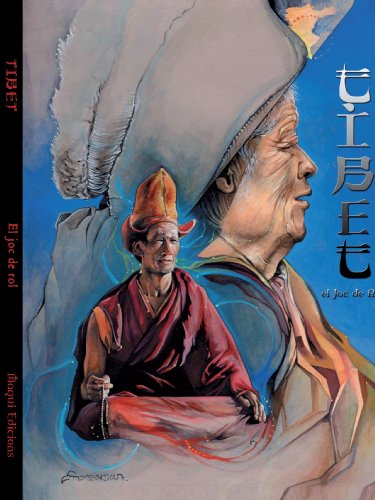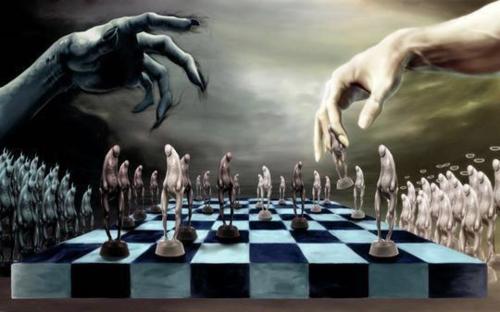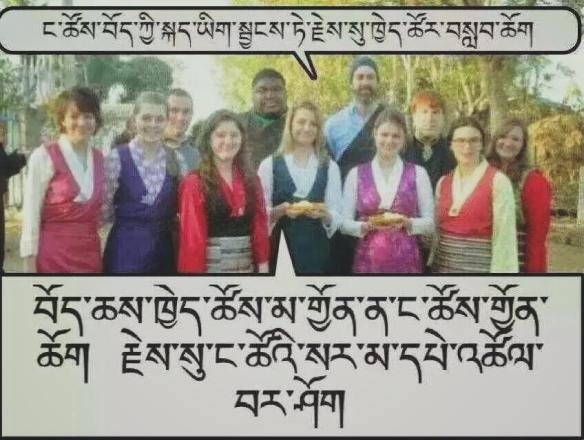I realized that I forgot to post a link to the interview I did with Gordon White for his Rune Soup podcast a few months ago here on the blog. Gordon and I had some trouble finding a strong enough internet connection when I was in South Africa to do the interview and I eventually ended up having to sneak into an empty lecture theatre late at night at the University of Cape Town with the help of an old friend and plug my laptop into a stray Ethernet cable to get good enough wifi to proceed (my thanks to said friend for the help and for getting a bemused pizza guy to show up at one point halfway through the interview).
Tag Archives: cultural appropriation
Anthropology, Esotericism, and ‘Fringe’ Buddhism: Interview on the Imperfect Buddha Podcast

A month or two ago I did an interview with Matthew O’Connell for his ‘Imperfect Buddha’ podcast, where I talked about doing research on Western esotericism as an anthropologist and scholar-practitioner, and about some of the more ‘fringe’ dimensions of global Tibetan Buddhism today. I ended up talking a lot about myself and not that much about the specific details of my research, and Matthew barely got a word in edgeways, but it is what it is. Many of the posts and articles on this blog get a mention. I no doubt said a lot of things that would benefit from further qualification and which I would probably take issue with if I heard myself saying them now. The thought of listening to my voice drone on for that long curdles my juices and fills me with acute horror though, so I’m can’t be sure – you’ll just have to listen to the interview yourselves and tell me how it makes you feel instead.
Shout out to Matt for arranging things, and thinking I was interesting enough to have on the show. Let me know what you think!
Shifty Sorcerers and Playing with Empathy: a response from the creator of Tibet: The Role Playing Game

Recently, Brian St. Claire-King, the Creative Director of Vajra Enterprises and creator of Tibet: The Role Playing Game sent me a response to my essay on this blog about his game, and he was kind enough to let me share it with readers. Brian has honoured me with some very thorough and thoughtful comments on my post. I’m glad he responded – I made it very clear to him that what moved me to write the piece in the first place was the extent to which he achieved what struck me as a remarkable level of feasibility in his representations of Tibetan life. I was amazed to discover his work, and at least a few Tibetans who read my article have let me know that they were fascinated to see it too.
In his letter below, Brian answers some of the questions I pose in the article, and points out some areas worth elaborating on or exploring further. He expands persuasively on gaming’s power to engender empathy, and echoes eloquently some of my own thinking on the parallels between anthropological and gaming ‘pedagogies’ (I especially love the idea he mentions of gamers using RPG resources to get into the headspace of the very same Christian moral crusader ‘enemies’ who sought to oppose their activities). Continue reading
Permanent Buddhism: Mark Hay’s article on Culturally-sensitive Buddhist Tattoos

A few days ago, a friend let me know that freelance writer Mark Hay’s piece in Tricycle Magazine about his years-long journey to get an appropriate-and-non-appropriative Buddhist tattoo had come out. Hay interviewed me as part of the piece, and I see that I get more than one mention in the final cut. Thankfully, I’m not paraphrased too awkwardly, and Mark gives a good overview of some of the issues at stake with getting tattoos that involve very culturally-specific imagery or contexts. Continue reading
Tibet, the Role Playing Game: Table-top Anthropologies and Competing Knowledge Jurisdictions

When I was a kid growing up in pre- and post-Apartheid South Africa it wasn’t easy to study occultism.
To be sure, South Africa is a country filled with professional and semi-professional sorcerers, but it is also a nation whose white supremacist government for a long time directly funded a special ‘Occult-Related Crimes Unit’ attached to the national police force. This unit, which was founded in 1992 and which was supposedly officially disbanded/absorbed in 2006 (but which is in fact still operating in various capacities) was guided for the most part by the expertise and priorities of white, Afrikaner Christian investigators. Working under the auspices of the state, pastors with police training, criminology degrees and a measure of knowledge about local black South African ‘customs and traditions’ investigated South Africa’s dark and criminal occult underbelly. While the existence of witch-lynching and so-called ‘muthi killings’ – ritual murders conducted to ostensibly secure human parts for sale in criminal magical economies and use in rituals – served as the primary justification for state-spending on the Unit, the majority of the Unit’s time appears to have been spent on locating and routing out ‘cells’ of adult and teenage Satanists, and assisting especially young South Africans who had been afflicted by demons and other Satanic forces. Continue reading
Tibetan ‘Yogi-Doctors’ Today: Professor Gojo Wangdu’s Preface to Dr Nida’s new book on Mantra Healing

“If You Don’t Wear Them, We Will”: Preservation, Appropriation, and the Importance of Role-models in Tibetan Cultural Life

I came across this Tibetan meme on Facebook a few months ago. In true meme style, pithy as it is, it manages to encapsulate and gesture towards a great deal. The image shows an assortment of beaming non-Tibetan foreigners wearing traditional Tibetan dress. The top speech bubble says:
“We will learn spoken and written Tibetan and then we will teach it to you” Continue reading
Tripping on Good Vibrations: Cultural Commodification and ‘Tibetan’ Singing Bowls

This was also a piece I did not expect to write. Popular media, and reactions to popular media however, got me thinking more about issues of commodification and cultural appropriation, and the singing bowl turned out to be a particularly useful entry point into a lot of these.
I find it quite surprising that so little academic material has been written about singing bowls and their history, despite them being such iconic and familiar New Age objects. Continue reading
Secrets of the Sex Magic Space Lamas Revealed! Tibetan Buddhist Aliens and Religious Syncretism

This was probably my favourite of the four October essays to write, probably because it involved so many things that I love to think and talk about, but was also something I never, ever imagined I’d be writing for an anthropological audience, or maybe at all.
Years ago I was warned by a lovely acting HoD in an anthropology department to be careful of pursuing the study of esotericism Continue reading
Angry White Buddhists and the Dalai Lama: Appropriation and Politics in the Globalization of Tibetan Buddhism

Since I’m just now launching this blog, I thought I would re-post links to my earlier Savage Minds blog essays for readers, with some additional comments.
This is the first piece I put out on the Savage Minds blog, and deals with the controversial Western Buddhist organization, the New Kadampa Tradition (NKT). This was a modest piece on my part. Continue reading

